
Nessebar: A Journey Through Time in Bulgaria's Ancient Gem
Nessebar, often referred to as the 'Pearl of the Black Sea,' is a city with a history that spans over three millennia. Nestled on a rocky peninsula, this UNESCO World Heritage site offers a unique blend of ancient ruins, charming cobblestone streets, and stunning sea views. Walking through its narrow lanes, visitors can explore the remnants of its Thracian origins, Greek and Roman fortifications, and medieval Bulgarian churches. The old town is a treasure trove of architectural wonders, with over 40 churches from various periods, each showcasing different styles and influences. The Church of Saint Sophia and the Church of Christ Pantocrator are particularly noteworthy, drawing history enthusiasts and photographers alike. Beyond its historical allure, Nessebar boasts beautiful beaches, making it an ideal destination for those looking to combine culture with relaxation. In addition to its rich history and scenic beauty, Nessebar also offers a vibrant culinary scene. Local restaurants serve fresh seafood and traditional Bulgarian dishes, providing a delightful culinary journey for visitors. The town's atmosphere is both quaint and lively, with street vendors, artisanal shops, and cultural festivals adding to its charm.
Local tips in Nessebar
- Visit early in the morning or late in the evening to avoid tourist crowds and capture the best photos.
- Wear comfortable shoes as the cobblestone streets can be uneven and require good footing.
- Try the local seafood dishes, especially the freshly caught Black Sea fish.
- Don't miss the Archaeological Museum for an insightful look into Nessebar's rich history.
- Explore the surrounding beaches for a relaxing break from sightseeing.
Nessebar: A Journey Through Time in Bulgaria's Ancient Gem
Nessebar, often referred to as the 'Pearl of the Black Sea,' is a city with a history that spans over three millennia. Nestled on a rocky peninsula, this UNESCO World Heritage site offers a unique blend of ancient ruins, charming cobblestone streets, and stunning sea views. Walking through its narrow lanes, visitors can explore the remnants of its Thracian origins, Greek and Roman fortifications, and medieval Bulgarian churches. The old town is a treasure trove of architectural wonders, with over 40 churches from various periods, each showcasing different styles and influences. The Church of Saint Sophia and the Church of Christ Pantocrator are particularly noteworthy, drawing history enthusiasts and photographers alike. Beyond its historical allure, Nessebar boasts beautiful beaches, making it an ideal destination for those looking to combine culture with relaxation. In addition to its rich history and scenic beauty, Nessebar also offers a vibrant culinary scene. Local restaurants serve fresh seafood and traditional Bulgarian dishes, providing a delightful culinary journey for visitors. The town's atmosphere is both quaint and lively, with street vendors, artisanal shops, and cultural festivals adding to its charm.
When is the best time to go to Nessebar?
Iconic landmarks you can’t miss
Church of Saint Sophia
Explore the Church of Saint Sophia in Nessebar, Bulgaria—an ancient Orthodox church that offers stunning architecture and a rich historical experience.
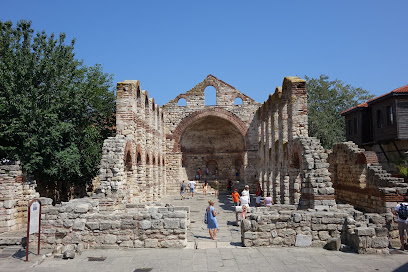
Nesebar Archaeological Museum
Explore Nesebar's captivating past at the Archaeological Museum, showcasing millennia of history and cultural treasures.
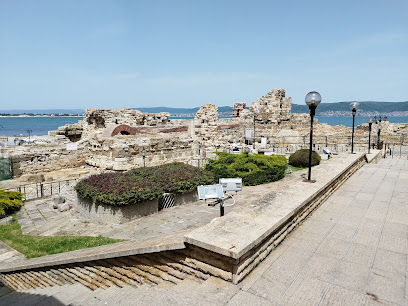
Old Nessebar
Uncover the historical wonders and culinary delights of Old Nessebar, a gem of Bulgaria's Black Sea coast, where every corner tells a story.
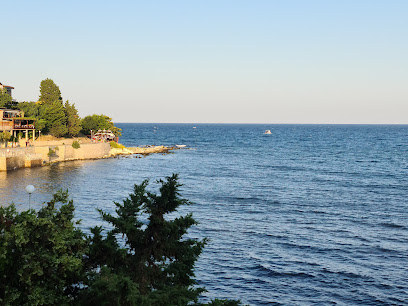
Ancient Theatre
Discover the Ancient Theatre of Nessebar, a historical landmark that unveils the rich cultural heritage and stunning views of Bulgaria's coastal paradise.
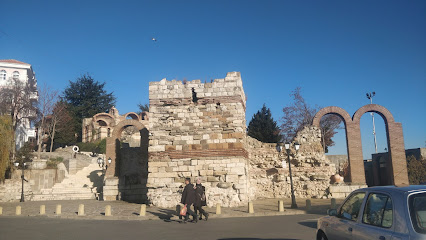
Nesebar Plajı
Discover Nesebar Plajı: Golden sands, clear waters, and ancient history combine for a perfect Black Sea escape in Bulgaria.
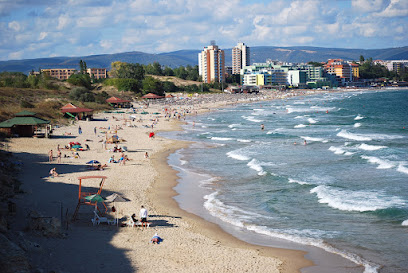
Church of Christ Pantokrator
Discover the Church of Christ Pantokrator in Nessebar: a stunning example of Byzantine architecture and a window into Bulgaria's rich medieval past.
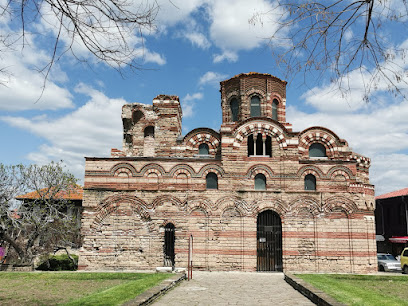
The Windmill, Nessebar
Explore the historic Windmill in Nessebar, a captivating landmark that offers breathtaking views and a glimpse into Bulgaria's maritime heritage.
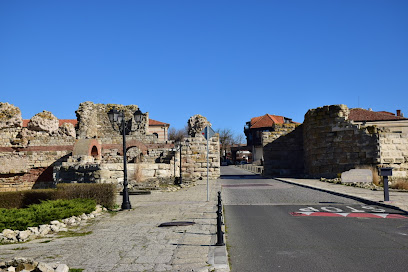
Nesebar
Explore the cultural richness and historical charm of Nesebar, a UNESCO World Heritage site on the stunning Bulgarian Black Sea coast.
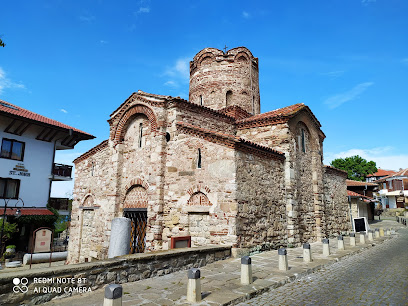
Западна крепостна стена
Discover the captivating history and breathtaking views at the Western Fortress of Nessebar, a UNESCO World Heritage site in Bulgaria.
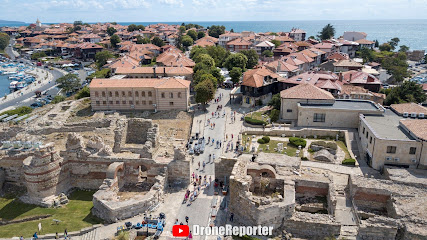
Port Nessebar
Experience the stunning marina of Port Nessebar, a historic gem by the Black Sea, where culture, beauty, and adventure come together.
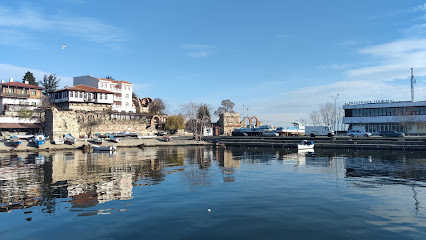
Old Town Nessebar
Discover Nessebar's ancient churches, cobblestone streets, and rich history on Bulgaria's Black Sea coast, a UNESCO World Heritage site.
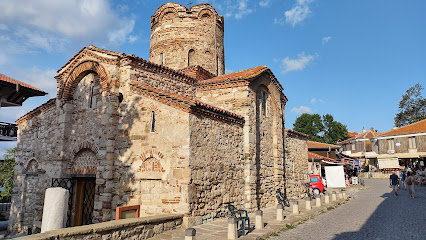
Tower Nessebar
Discover the grandeur of Tower Nessebar, a medieval fortress showcasing Bulgaria's rich heritage and breathtaking coastal views.
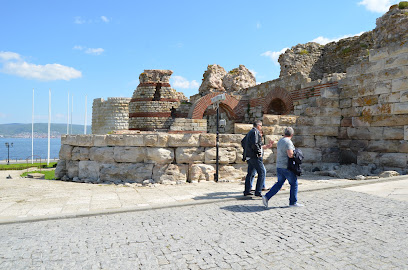
Плаж в стария град Несебър
Потопете се в историята и се насладете на слънцето на този очарователен плаж в сърцето на стария град Несебър, обект на световното наследство на ЮНЕСКО.
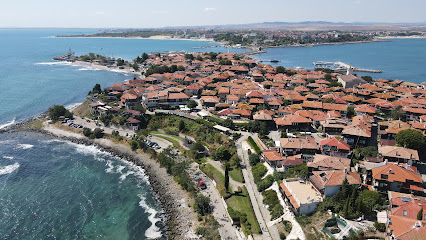
Church of Saint Paraskeva
Discover a beautifully preserved medieval church in Nessebar, showcasing intricate architecture and a rich history as a UNESCO World Heritage Site.
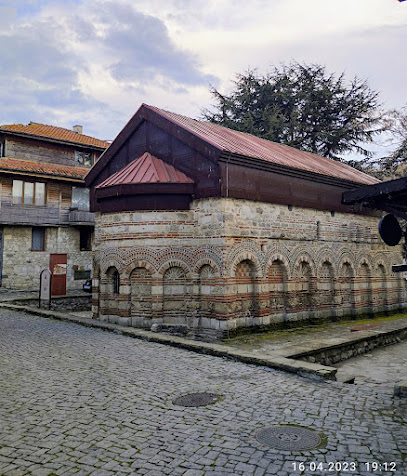
Church of Saint John the Baptist
Discover the enchanting Church of Saint John the Baptist in Nessebar, a historical gem with breathtaking architecture and rich cultural significance.
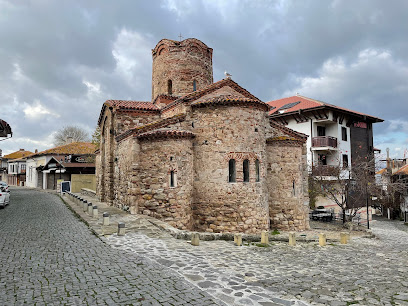
Unmissable attractions to see
Ancient Theatre
Explore the Ancient Theatre in Nessebar, a historical landmark that showcases Bulgaria's rich heritage and offers stunning views of the Black Sea.
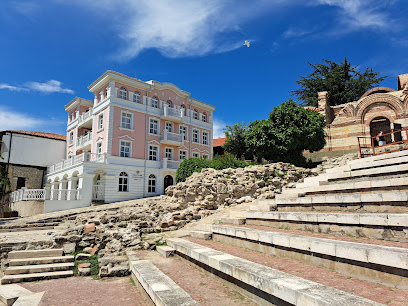
Camel Park Sunny Beach
Experience a unique family adventure at Camel Park Sunny Beach: ride camels, meet exotic animals, and discover Bulgarian culture near Nessebar.
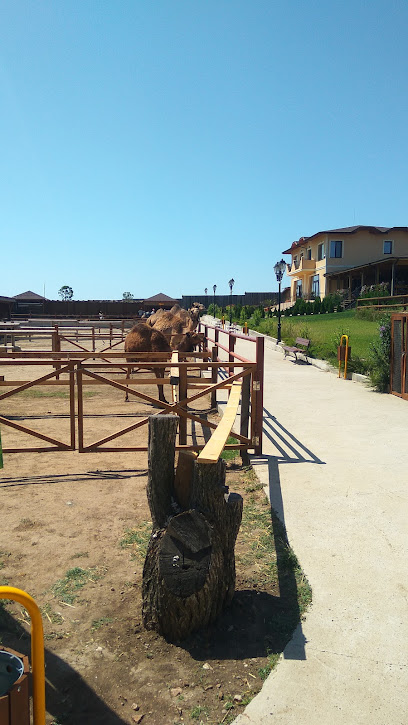
South Park Nessebar
Explore the natural beauty and tranquility of South Park Nessebar, a lush haven perfect for relaxation and picturesque views of the Black Sea.
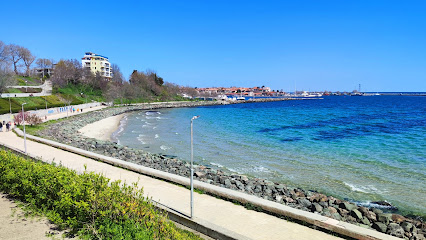
Kakadu
Explore the diverse ecosystems and rich Indigenous culture of Kakadu National Park, a UNESCO World Heritage site in Australia.
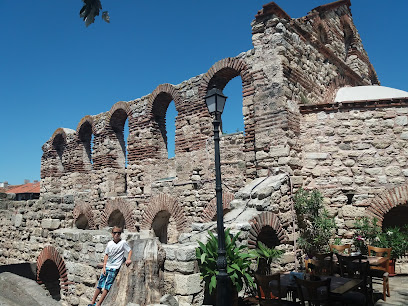
Film Museum Nessebar
Discover the cinematic treasures of Bulgaria at the Film Museum Nessebar, a unique destination rich in film history and cultural exploration.
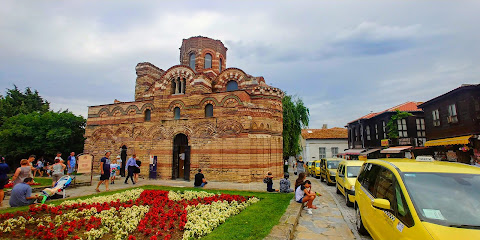
Nessebar UNESCO Sign
Explore Nessebar's ancient streets, churches, and ruins – a UNESCO World Heritage site where history comes alive on Bulgaria's Black Sea coast.
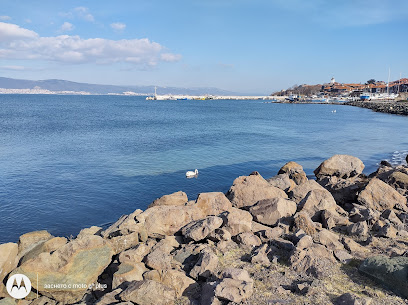
Sunrise view from the dunes
Witness the breathtaking sunrise over the Black Sea from the tranquil dunes of Nessebar, a perfect blend of natural beauty and serenity.
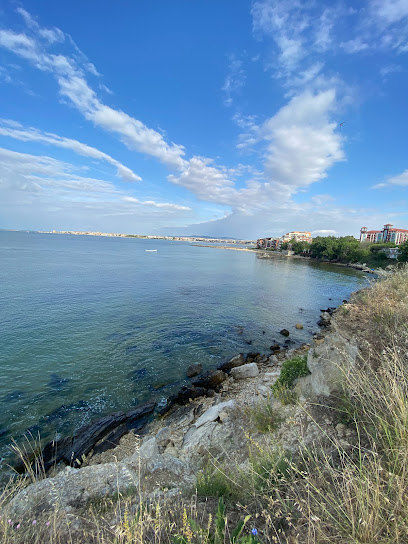
Nesebbar's coast alley view
Discover the stunning coastal views and rich history of Nessebar's coast alley, a picturesque destination on Bulgaria's Black Sea coast.
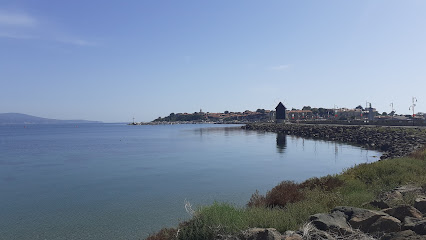
Mini Golf “Cherno More”
Discover fun and excitement at Mini Golf 'Cherno More' in Nessebar, a perfect destination for families and friends seeking a memorable day of leisure.
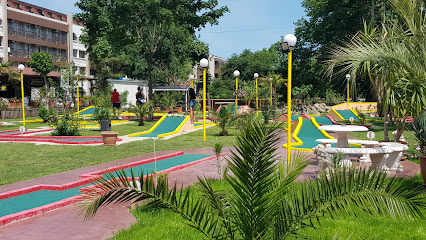
Релефна карта на Стария Несебър
Explore Nessebar, a UNESCO World Heritage site, where ancient ruins meet stunning Black Sea views in a charming seaside town.
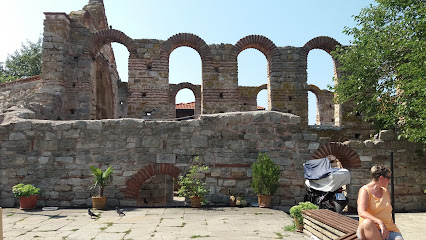
Cacao Beach
Experience the golden sands and vibrant nightlife of Cacao Beach, Nessebar – your ultimate destination for summer fun and unforgettable memories.
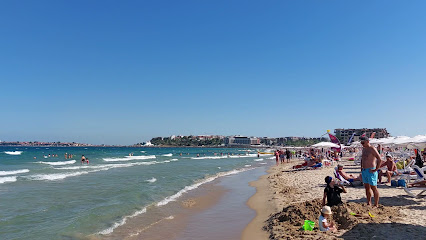
Ancient City of Nessebar
Explore the Ancient City of Nessebar, a UNESCO World Heritage site, where history meets stunning coastal beauty in Bulgaria's remarkable seaside gem.
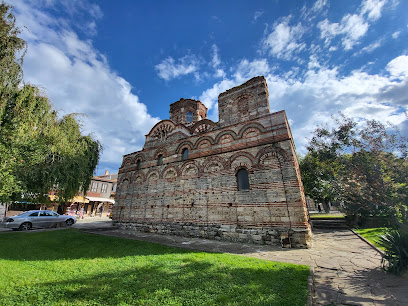
Water Attractions
Explore Nessebar's enchanting water attractions, where adventure meets breathtaking beauty along Bulgaria's stunning coast.
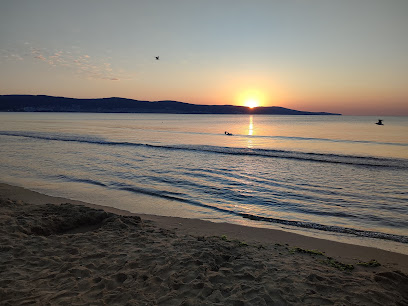
Wild sand dunes Sunny Beach
Unwind at the Wild Sand Dunes of Sunny Beach, a stunning natural attraction offering breathtaking views and a unique ecological experience.
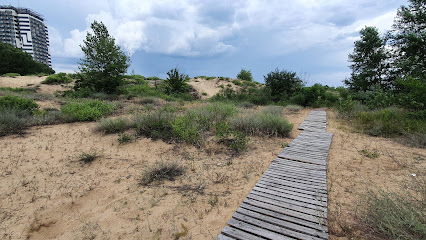
Park
Experience the tranquility of Nessebar Park, a lush sanctuary perfect for relaxation and stunning views of the Black Sea.
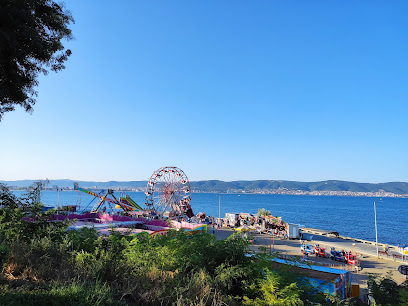
Essential places to dine
White Rose
Discover authentic Bulgarian flavors at White Rose Restaurant in Nessebar – where tradition meets taste in every dish.
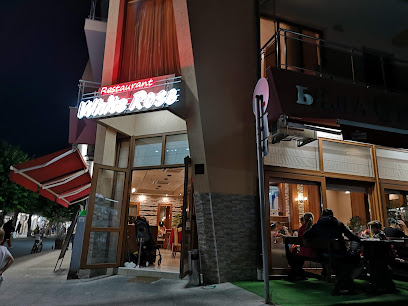
Emona
Discover Emona in Nessebar - where delicious barbecue, pizza, and seafood meet stunning coastal views for an unforgettable dining experience.
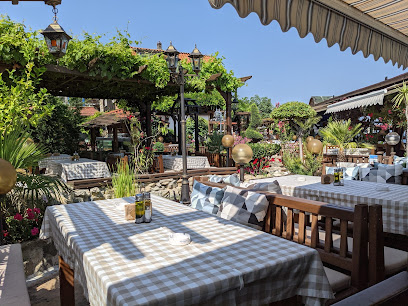
Old Sailor
Experience authentic Bulgarian seafood at Old Sailor in Nessebar, where fresh flavors meet stunning coastal views.
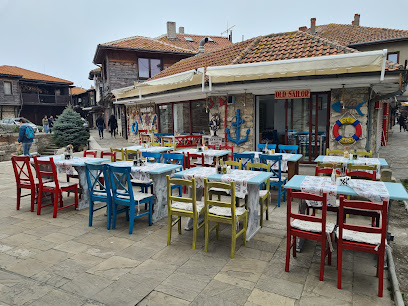
Familia Fish & Grill
Experience authentic Bulgarian seafood cuisine at Familia Fish & Grill in scenic Nessebar.
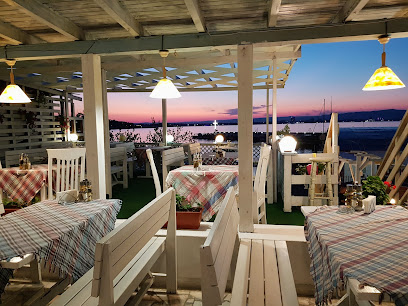
Plakamoto
Discover the flavors of Bulgaria at Plakamoto in Nessebar - a culinary haven blending tradition with modern taste.
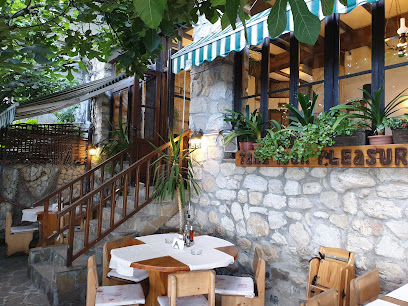
Dionis
Experience authentic Bulgarian cuisine at Dionis in Nessebar – perfect for families seeking delicious meals and warm hospitality.
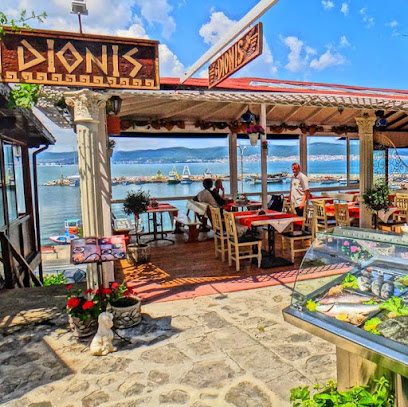
Restorant Kalisto
Discover authentic Bulgarian cuisine at Restorant Kalisto in Nessebar's historic Staria Grad.
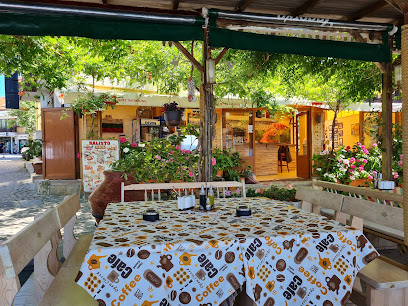
The Old Andromeda Restaurant/ Старата Андромеда
Discover Mediterranean flavors at The Old Andromeda Restaurant in Nessebar - where history meets exquisite cuisine.
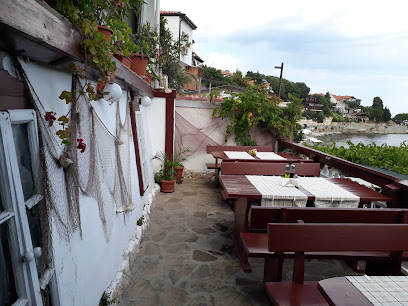
Jambo
Discover authentic Bulgarian cuisine in Nessebar at Jambo – where every meal is a celebration of local flavors and warm hospitality.
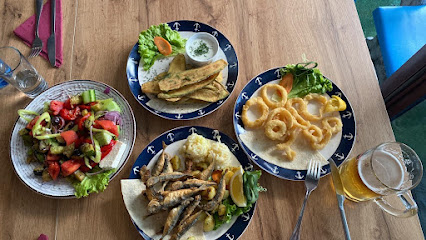
Bistro Aquamarin
Discover the flavors of Bulgaria at Bistro Aquamarin in Nessebar - where tradition meets modern culinary excellence.
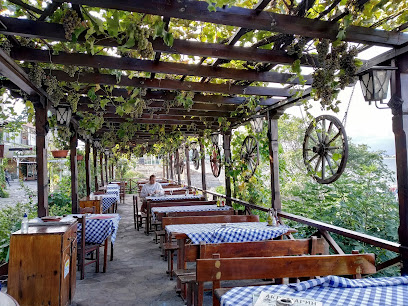
Restaurant Stariya Kavak The Old Tree
Experience authentic Bulgarian cuisine and fresh seafood at Restaurant Stariya Kavak in Nessebar's historic old town.
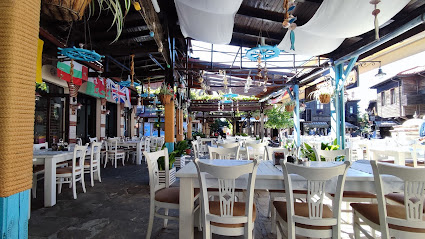
Restaurant Prince Cyril
Experience authentic Bulgarian cuisine in the charming ambiance of Restaurant Prince Cyril in Nessebar's historic district.
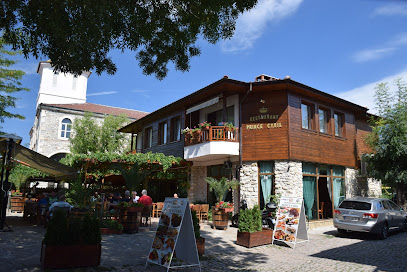
Рибен ресторант Ivanoff
Discover authentic Bulgarian seafood at Рибен ресторант Ivanoff in Nessebar – where fresh flavors meet stunning coastal views.
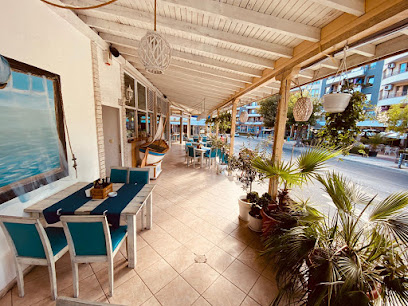
Metropolia Restaurant
Discover authentic Bulgarian cuisine at Metropolia Restaurant in Nessebar - where tradition meets taste.
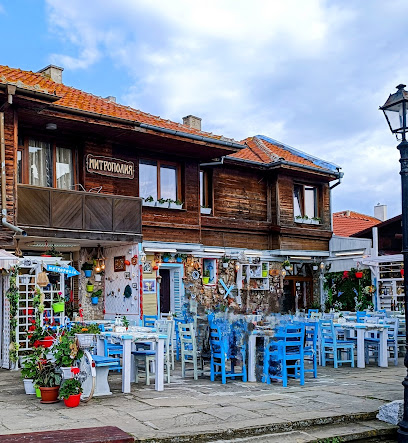
Restaurant Kristal
Experience authentic Bulgarian cuisine at Restaurant Kristal in Nessebar's historic Staria Grad, where taste meets tradition in an enchanting setting.
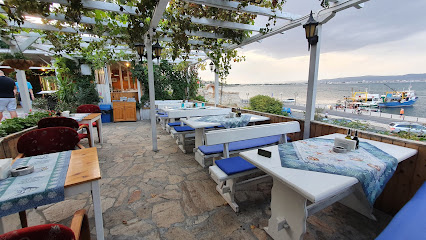
Markets, malls and hidden boutiques
Pan Janek - Bułgarskie Przyprawy Nesebar Shop
Explore authentic Bulgarian spices and gifts at Pan Janek, a charming shop in Nessebar's historic Staria Grad.
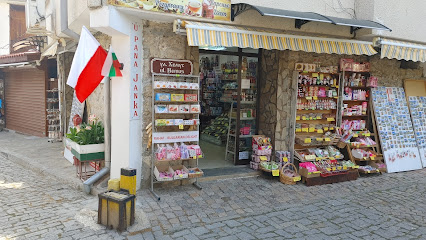
Trading handbags, belts and wallets Pipozzo Nessebar
Explore Pipozzo Nessebar for exquisite leather handbags, belts, and wallets in the historic heart of Nessebar, Bulgaria.
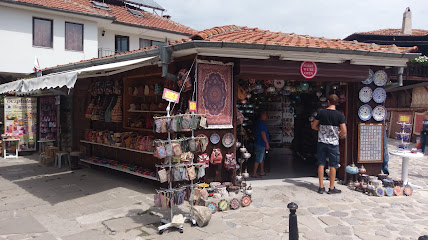
J-Craft Ltd Jewelry Store
Explore J-Craft Ltd Jewelry Store in Nessebar for exquisite handcrafted jewelry and unique gifts that capture the essence of Bulgarian artistry.
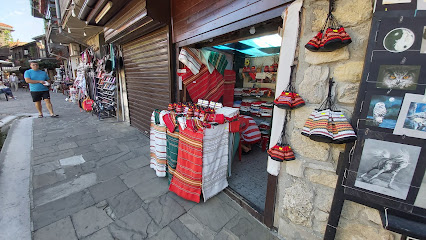
LORETTA BAGS - NESSEBAR (NEW TOWN)
Discover stylish handbags and unique accessories at Loretta Bags in Nessebar, where quality meets elegance in every piece.
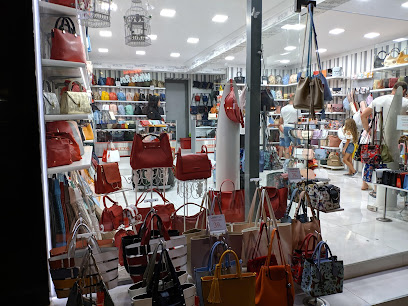
kashmiri bg
Explore Kashmiri BG in Nessebar for exquisite scarves and jackets blending tradition with modern style, perfect for fashion enthusiasts and tourists alike.
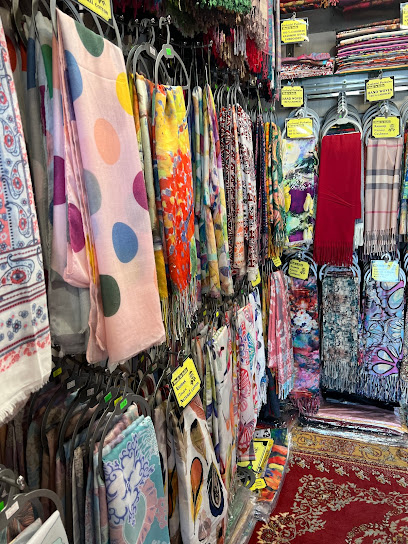
Wine and sweet shop Nessebar
Explore the exquisite selection of local wines and delectable sweets at the Wine and Sweet Shop in Nessebar, a true delight for tourists.
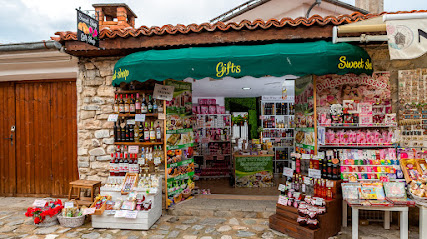
Vintage Italiano
Discover Vintage Italiano in Nessebar, where Italian fashion meets exceptional service for an unforgettable shopping experience.
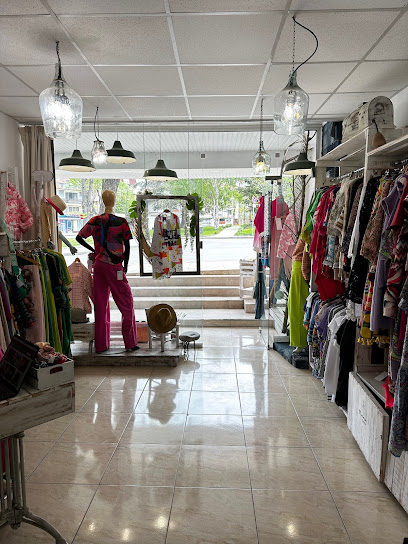
pandora Nesebar
Explore Pandora Nesebar: A Shopping Mall Infused with the Rich History of Nessebar, Bulgaria. Experience Modern Retail Amidst Timeless Charm.
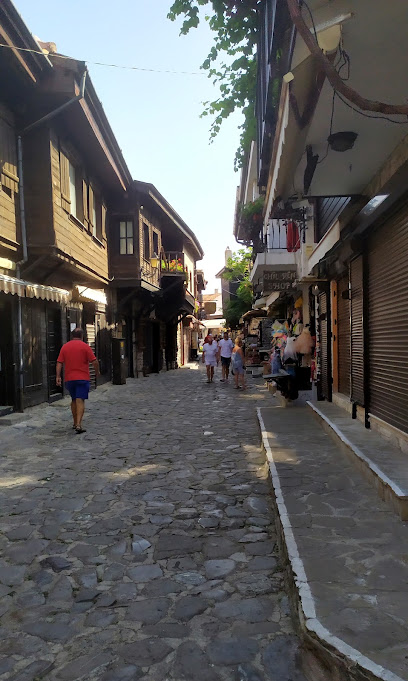
The Supreme Records Shop Nessebar
Explore the rich musical heritage of Nessebar at The Supreme Records Shop, where vintage vinyl and local tunes await every music lover.
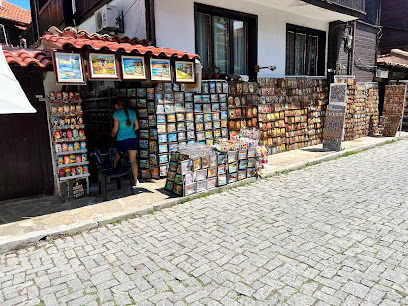
Hand-made Shop Kostov
Discover the charm of Bulgarian craftsmanship at Hand-made Shop Kostov in Nessebar, a must-visit souvenir store for unique and authentic keepsakes.
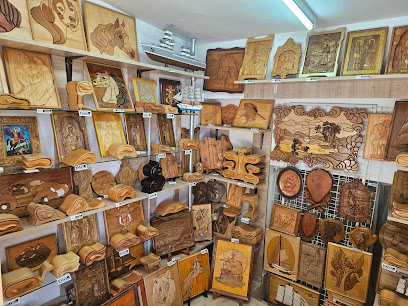
Antique Store
Explore a charming antique store in Nessebar's Staria Grad, filled with unique artifacts and treasures that capture the essence of history.
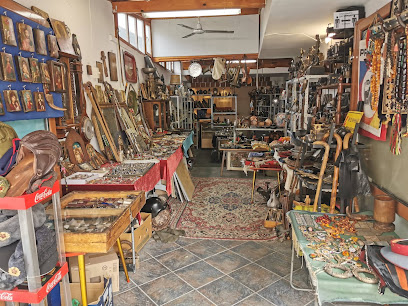
Tabacco Mall
Explore the charming Tabacco Mall in Nessebar for a unique shopping experience that blends local culture with modern retail offerings.
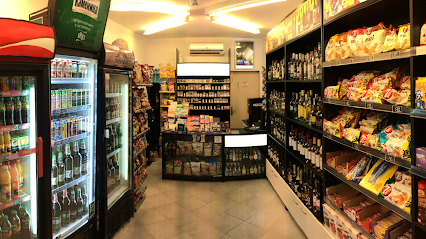
SEA OF SILVER AND GOLD
Explore the Sea of Silver and Gold for exquisite fashion accessories and a taste of Bulgaria's vibrant local culture in Nessebar.
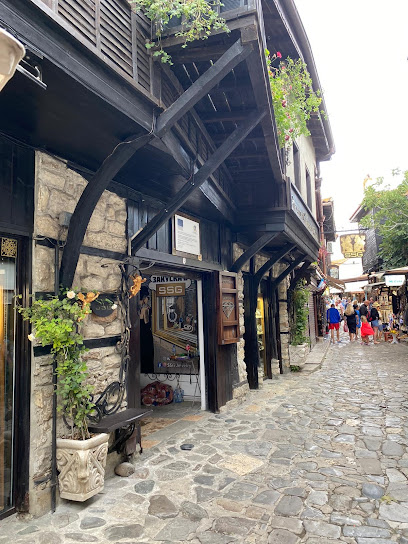
Mira's handmade ceramic beads and jewelry
Discover the exquisite artistry of handmade ceramic beads and jewelry at Mira's in Nessebar, a must-visit gift shop for unique souvenirs.
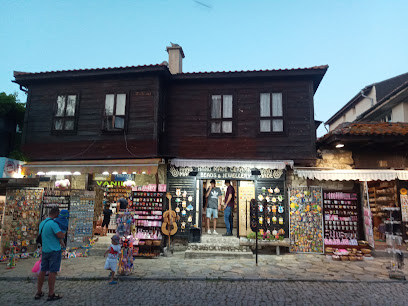
Art shop ORANGE
Discover unique Bulgarian artistry at Art Shop ORANGE in Nessebar's historic Staria Grad, a must-visit for art lovers and souvenir seekers.
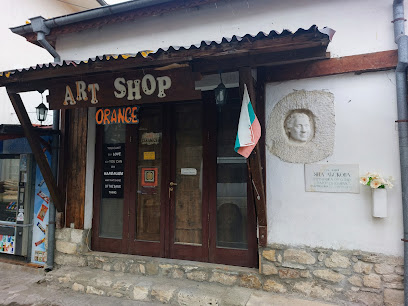
Essential bars & hidden hideouts
Familia Fish & Grill
Discover the culinary delights of Familia Fish & Grill in Nessebar, where fresh seafood meets a charming coastal atmosphere.
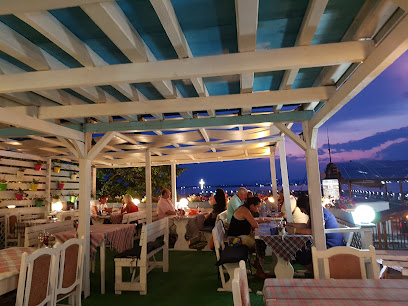
Corner Bar & Dinner
Experience unforgettable nights filled with great food and drinks at Corner Bar & Dinner in Sunny Beach, a vibrant hotspot for tourists.
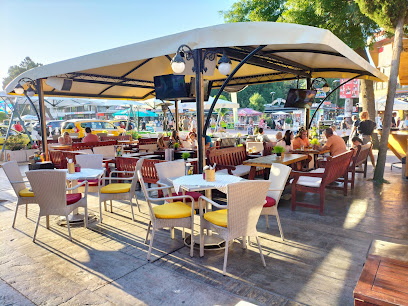
ECO-Bar By Michael
Discover the vibrant ECO-Bar By Michael in Nessebar, where local flavors meet lively ambiance, perfect for unwinding after a day of exploration.
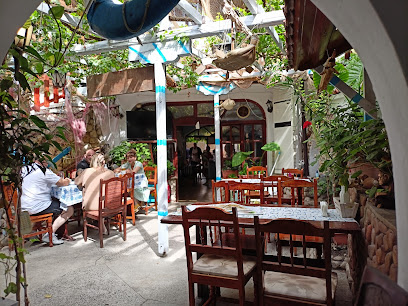
Condor Bar
Discover the lively nightlife and refreshing drinks at Condor Bar in Sunny Beach, the ultimate destination for fun and relaxation.
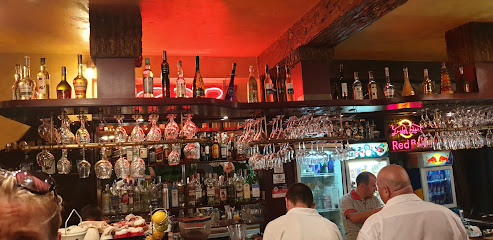
Caramel - Music Hall
Discover the vibrant nightlife at Caramel - Music Hall, Nessebar's premier bar for live music and energetic vibes on the coast.
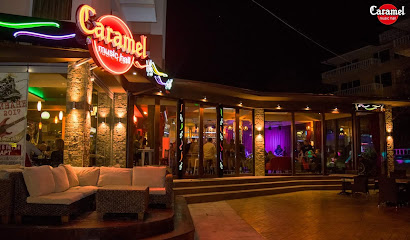
Restorant Kalisto
Savor the flavors of Bulgaria at Restorant Kalisto, where tradition meets modern culinary excellence in the heart of Nessebar.
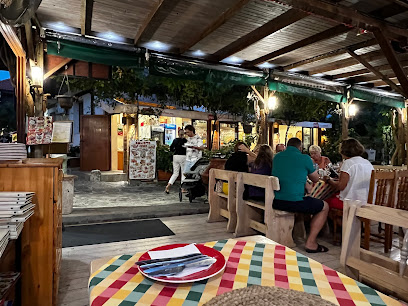
Hidden Beach Bar
Discover the Hidden Beach Bar in Sunny Beach - a perfect blend of relaxation, vibrant nightlife, and local flavors await you.
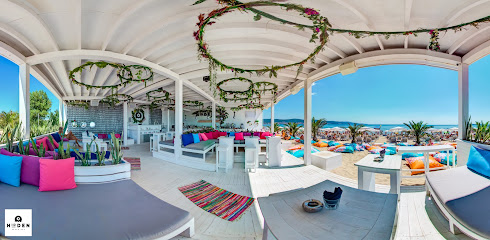
Bar Mexo
Experience the vibrant nightlife at Bar Mexo, the ultimate cocktail bar in Sunny Beach, Bulgaria, where every sip is a celebration.
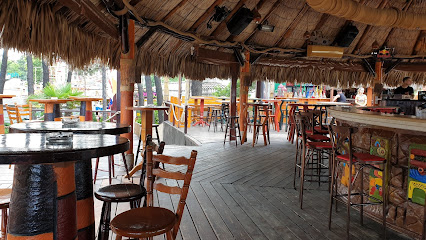
Restaurant Romantica & Panorama
Discover the romantic charm and panoramic views at Restaurant Romantica & Panorama in Nessebar, where exquisite cuisine meets stunning scenery.
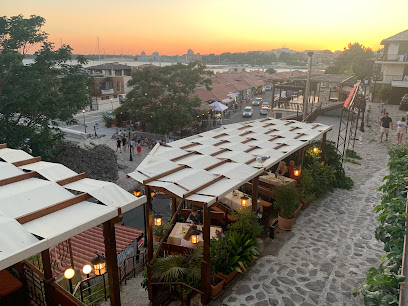
The HARP Bar
The HARP Bar in Nessebar: A vibrant bar where locals and tourists come together for drinks, music, and unforgettable memories.
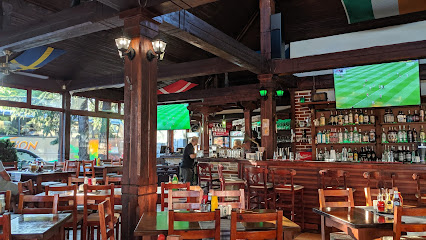
Boulevard
Experience the best of Nessebar at Boulevard, where fresh seafood, delicious pizzas, and live music create an unforgettable dining experience.
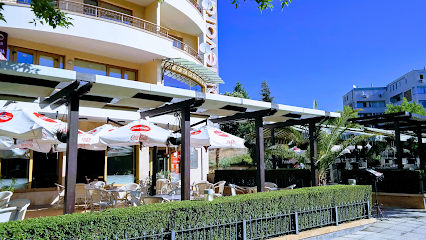
The White Bar
Experience the vibrant atmosphere of The White Bar in Nessebar, where stunning sea views meet delicious drinks and lively entertainment.
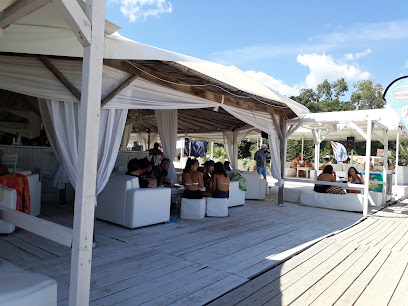
John Smith's Pub
Experience the vibrant atmosphere and diverse menu at John Smith's Pub in Slanchev Bryag, the perfect spot for relaxation and fun.
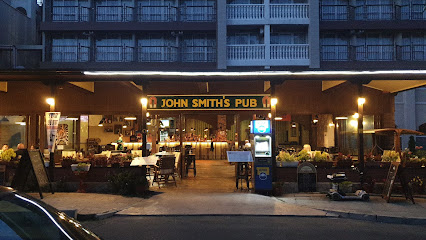
EXTREME Surf School Nesebar
Experience the thrill of surfing and the relaxation of beachfront lounging at EXTREME Surf School in Nessebar, Bulgaria.
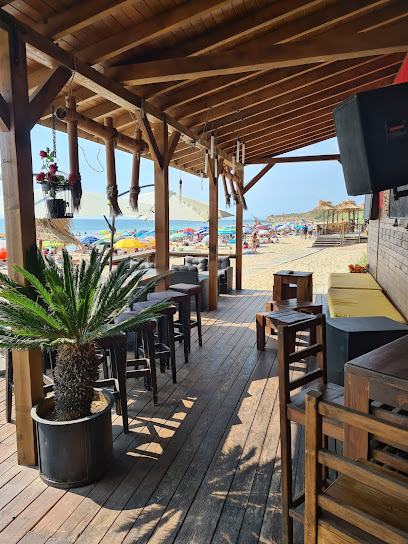
Local Phrases about Nessebar
-
- HelloЗдравей
[Zdravey] - GoodbyeДовиждане
[Dovizhdane] - YesДа
[Da] - NoНе
[Ne] - Please/You're welcomeМоля
[Molya] - Thank youБлагодаря
[Blagodarya] - Excuse me/SorryИзвинявай
[Izvinyavay] - How are you?Как си?
[Kak si?] - Fine. And you?Добре. А ти?
[Dobre. A ti?] - Do you speak English?Говориш ли английски?
[Govorish li angliyski?] - I don't understandНе разбирам
[Ne razbiram]
- HelloЗдравей
-
- I'd like to see the menu, pleaseБих искал да видя менюто, моля
[Bih iskal da vida menyuto, molya] - I don't eat meatНе ям месо
[Ne yam meso] - Cheers!На здраве!
[Na zdrave!] - I would like to pay, pleaseБих искал да платя, моля
[Bih iskal da platya, molya]
- I'd like to see the menu, pleaseБих искал да видя менюто, моля
-
- Help!Помощ!
[Pomosht!] - Go away!Отдалечи се!
[Otdalechi se!] - Call the Police!Обади полицията!
[Obadi politsiyata!] - Call a doctor!Обади доктор!
[Obadi doktor!] - I'm lostЗагубих се
[Zagubi se] - I'm illБолен съм
[Bolen sam]
- Help!Помощ!
-
- I'd like to buy...Бих искал да купя...
[Bih iskal da kupya...] - I'm just lookingСамо гледам
[Samo gledam] - How much is it?Колко струва?
[Kolko struva?] - That's too expensiveТова е твърде скъпо
[Tova e tvurde skupoo] - Can you lower the price?Можеш ли да намалиш цената?
[Mozhesh li da namalish tsenata?]
- I'd like to buy...Бих искал да купя...
-
- What time is it?Колко е часът?
[Kolko e chasat?] - It's one o'clockЕдин час е
[Edin chas e] - Half past (10)Половината на (10)
[Polovinata na (10)] - MorningСутрин
[Sutrin] - AfternoonСледобед
[Sledobed] - EveningВечер
[Vecher] - YesterdayВчера
[Vchera] - TodayДнес
[Dnes] - TomorrowУтре
[Utre] - 1Едно
[Edno] - 2Две
[Dve] - 3Три
[Tri] - 4Четири
[Chetiri] - 5Пет
[Pet] - 6Шест
[Shest] - 7Седем
[Sedem] - 8Осем
[Osem] - 9Девет
[Devet] - 10Десет
[Deset]
- What time is it?Колко е часът?
-
- Where's a/the...?Къде е...
[Kade e...] - What's the address?Какъв е адресът?
[Kakav e adresat?] - Can you show me (on the map)?Можеш ли да ми покажеш (на картата)?
[Mozhesh li da mi pokazhesh (na kartata)?] - When's the next (bus)?Кога е следващият (автобус)?
[Koga e sledvashtiyat (avtobus)?] - A ticket (to ....)Билет (до ...)
[Bilet (do ...)]
- Where's a/the...?Къде е...
History of Nessebar
-
Nessebar's history dates back to the second millennium BC when it was a Thracian settlement known as Menebria. The Thracians were known for their warrior culture and enigmatic art, leaving behind a legacy of tombs and artifacts that speak to their sophisticated society.
-
In the 6th century BC, Nessebar was colonized by Greek settlers from Megara, who renamed it Mesembria. The Greeks brought with them their advanced knowledge of architecture, trade, and governance, transforming the town into a bustling trade hub. Remnants of Greek influence can still be seen in the Hellenistic fortifications and ruins scattered throughout the old town.
-
By 72 BC, Mesembria fell under Roman control, later transitioning into the Byzantine Empire. During this period, the town flourished as a significant center of commerce and culture. The era left behind a remarkable collection of churches, such as the Church of St. Sophia and the Church of St. John the Baptist, showcasing early Byzantine architecture and mosaics.
-
Nessebar became part of the First Bulgarian Empire in the late 9th century and experienced a golden age of development and artistic achievement. Many churches and monasteries were built during this time, reflecting the distinctive Bulgarian medieval style. The town changed hands several times between the Bulgarian and Byzantine empires, each leaving its mark on Nessebar's cultural landscape.
-
In 1453, Nessebar fell to the Ottoman Turks, marking the beginning of several centuries of Ottoman rule. Despite this, the town managed to preserve its Christian heritage, evident in the numerous churches that continued to be built. The Ottoman period also introduced new architectural elements, such as wooden houses and intricate interior decorations.
-
Nessebar was liberated from Ottoman rule in 1878 during the Russo-Turkish War. The town underwent significant restoration and preservation efforts in the 20th century, culminating in its designation as a UNESCO World Heritage Site in 1983. Today, Nessebar is celebrated for its rich historical tapestry, attracting visitors from around the globe to explore its ancient streets and historic monuments.
Nessebar Essentials
-
Nessebar is located on the Black Sea coast of Bulgaria, approximately 35 kilometers north of Burgas. The nearest major airport is Burgas Airport (BOJ), which serves both international and domestic flights. From Burgas Airport, you can reach Nessebar by taxi, rental car, or bus. The journey typically takes around 30 to 40 minutes by road. Additionally, bus services operate from major Bulgarian cities like Sofia and Varna directly to Nessebar.
-
Nessebar is a compact town, and many of its attractions are within walking distance. For longer trips, local buses and taxis are readily available. There is also a mini-train that runs between the new and old parts of Nessebar, providing a convenient and scenic way to explore the town. Renting a bicycle or car can be an excellent option for exploring the surrounding areas at your own pace.
-
The official currency in Bulgaria is the Bulgarian Lev (BGN). Credit cards are widely accepted in hotels, restaurants, and shops in Nessebar. However, it is advisable to carry some cash, especially for small purchases and in local markets. ATMs are available throughout the town, and currency exchange offices are also easy to find.
-
Nessebar is generally a safe destination for tourists. However, like any travel destination, it is advisable to take standard precautions. Avoid walking alone at night in unfamiliar areas and keep an eye on your belongings in crowded places, such as markets and public transport. There are no specific high-crime areas targeting tourists in Nessebar, but staying vigilant and aware of your surroundings is always recommended.
-
In case of emergency, dial 112 for immediate assistance. The local police station and medical facilities are available in Nessebar. It is recommended to have travel insurance that covers medical emergencies. For minor health issues, there are pharmacies in the town where you can purchase over-the-counter medications. Make sure to carry a copy of your passport and insurance details with you at all times.
-
Fashion: Do dress modestly, especially when visiting religious sites. Avoid wearing beachwear outside of the beach areas. Religion: Do respect local customs and traditions. Always cover your shoulders and knees when entering churches. Public Transport: Do be respectful and give up your seat to elderly passengers. Don't eat or drink on public transport. Greetings: Do greet people with a handshake. A friendly 'Zdravei' (Hello) is also appreciated. Eating & Drinking: Do try local delicacies and accept food offerings graciously. Don't refuse hospitality, as it is considered impolite.
-
To experience Nessebar like a local, visit the local markets where you can buy fresh produce and traditional Bulgarian goods. Engage with locals, as they are often friendly and willing to share stories about the town's history and culture. Don't miss visiting the ancient churches and the Archaeological Museum to learn more about Nessebar's rich heritage. For a unique experience, take a stroll along the cobblestone streets of Old Nessebar, which is a UNESCO World Heritage Site, and enjoy the charming atmosphere.
Trending Landmarks in Nessebar
-
Church of Saint Sophia
-
Nesebar Archaeological Museum
-
Old Nessebar
-
Ancient Theatre
-
Nesebar Plajı
-
Church of Christ Pantokrator
-
The Windmill, Nessebar
-
Nesebar
-
Западна крепостна стена
-
Port Nessebar
-
Old Town Nessebar
-
Tower Nessebar
-
Плаж в стария град Несебър
-
Church of Saint Paraskeva
-
Church of Saint John the Baptist
Nearby Cities to Nessebar
-
Things To Do in Varna
-
Things To Do in Shumen
-
Things To Do in Stara Zagora
-
Things To Do in Constanta
-
Things To Do in Ruse
-
Things To Do in Haskovo
-
Things To Do in Gabrovo
-
Things To Do in Istanbul
-
Things To Do in Bucharest
-
Things To Do in Alexandroupoli
-
Things To Do in Pleven
-
Things To Do in Bursa
-
Things To Do in Canakkale
-
Things To Do in Kavala
-
Things To Do in Pitesti













